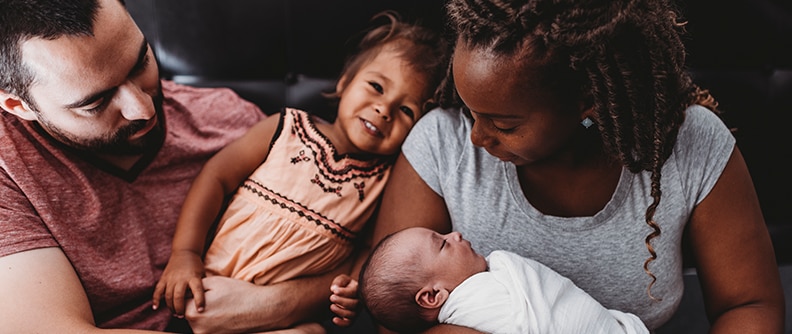Having a baby is a major life change. For some, it’s difficult to adjust to taking care of a little one. Follow these tips to help set yourself up for success.
Taking care of your own mental health
Many people find that their mental health is affected, at least a little bit, after having a baby. After all, your hormones are in flux, you’re sleep deprived, and your entire routine changes when you welcome your baby home.
Promoting good mental health means you might need to make some adjustments. Try these tips to feel your best mentally:
- Expect your emotions to be all over the place. It’s completely normal to feel a range of emotions, often within the same day. Be gentle with yourself and seek out help if you think you need it. It can be a good idea to talk with someone if you’re having trouble managing how you feel.
- Get out of your house. Taking your baby for a walk outside can be a great way to get some fresh air and exercise. There’s no need to be cooped up at home all the time!
- Let go of your expectations. You may need to relax your standards and accept help from friends and family. Don’t expect to be able to do everything.
- Prioritize your own health. Eating a healthy diet, drinking enough water, and getting enough sleep are all important for your wellbeing.
- Every day brings a new experience or challenge with your baby. Going with the flow can help take some of the stress off you.
Keep things in perspective and remember that your baby won’t be a newborn forever. However, if you’re concerned that you’re feeling depressed or are having trouble adjusting, contact your clinician. They can help you learn how to deal with the new stressors that come with having a new baby.
Setting boundaries with others
It’s likely that family and friends will want to see you and your baby. This can be a great thing, but you might find yourself becoming overwhelmed with the number of visitors.
Setting boundaries can be important for your own wellbeing. Let loved ones know what days are good to come over. Be sure to put a time limit on visits so that you can go about your day.
Before anyone holds your baby, make sure they wash their hands. People who are sick shouldn’t be around your infant.
Prioritizing your relationship with your partner
It can seem like you don’t have any time for your partner after your baby comes home. It’s important to maintain your primary relationship.
Both parents may have very different ideas about how to raise an infant. You both may have difficulty adjusting to your new role as caregivers.
Take time to share concerns, frustrations, and victories as you figure out your new normal. Laugh together. Cry together. Let your partner handle some baby duties while you deal with others. If you have trusted friends or family nearby, let them take care of your baby occasionally so you and your partner can enjoy simply being a couple.
